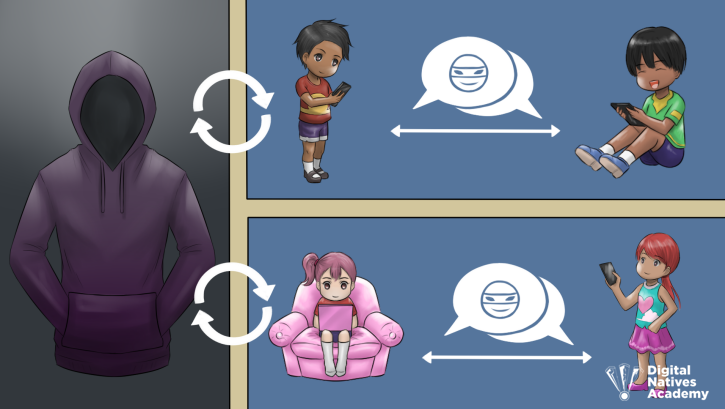- Posted on
- Creative Tech,Education,Technology
Definition: Cyberbullying or cyberharassment is a form of bullying or harassment using electronic/digital means. Cyberbullying is also known as online bullying. It has become increasingly common, especially among teenagers, as the digital sphere has expanded and technology has advanced
As technology has become more embedded in young people’s lives, cyberbullying rates have gone up. The exact rates are difficult to gauge because a lot of cyberbullying goes unreported but in places like Australia it has been reported that 1 in 5 children have reported being cyberbullied.
With such unlimited access to technology these days it means that cyberbullying can happen at any time. We constantly have our phones with us which tethers us to the online world wherever we go, so if someone is being bullied online, their own home is not even a safe place from it. And just because you unplug from the internet, the internet doesn’t turn off, meaning the bullying can still continue even though you aren’t present. This also means that cyberbullying can happen during school hours even if devices are banned and the effects of cyberbullying are certainly felt during school hours as well.
Students understand the online world and how to navigate it, often more so than their parents and teachers. They can figure out new ways to communicate with each other that are unknown to adults and free from supervision which can make it difficult to protect them or help them when things go wrong.
The nature of technology means that digital content can be shared and seen by a very wide audience almost instantly and is virtually impossible to delete permanently which adds even more problems when dealing with the effects particularly the long term effects of cyberbullying.
Cyberbullying online can look a little different than traditional bullying but the hurt and problems it can cause are equally as serious:
- Exclusion: Kids being left out either on purpose (from chat groups etc) or through lack of online access eg. No tablet or can’t buy the game
- Harassment: Comes in many forms online, usually the sending or receiving of nasty, threatening or hurtful messages via messaging platforms. Can also be people spreading rumours or lies online
- Outing: is the act of publicly revealing previously private personal information about a person to cause public Humiliation eg Shared photos, private information or videos of private or embarrassing moments
- Cyberstalking: Harassment online via information gathering that can be used for ill-intent
- Fraping/Hacking: When someone else gets control of your social media accounts and posts inappropriate content under your name
- Fake Profiles: These have many uses but most commonly utlised to anonymously harass people
- Dissing: The act of posting false or hurtful information to affect a person’s reputation or friendships
- Trickery/Grooming: The act of gaining trust under the guise of a false friendship to gain information that is later shared online
- Trolling: The act of provoking people online to make them angry and to illicit a response
- Catfishing: The act of creating a fake profile that can be used to target people
As you can see, there are some terms here that aren’t associated with traditional methods of bullying and are specific to the online space.

